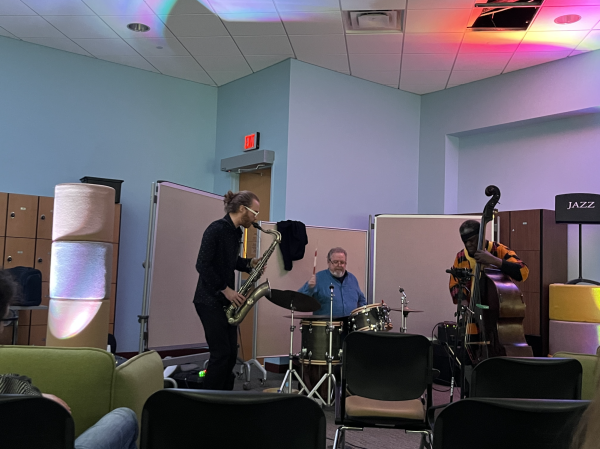Review of “Really, Really”
Last Wednesday, April 8, saw the premiere of Colgate University Theater’s production, “Really Really,” a relatively new play written by Paul Downs Colaizzo. Viewers gathered on benches set up in a circle around the stage, providing a much more intimate connection between the audience, the actors and the story.
The actors gave convincing performances, which drew the audience into a rather familiar college atmosphere in which a group of friends faced the consequences of one complicated night out. The backstage work aggrandized the effectiveness of the actors’ talent, resulting in an incredibly well-done performance.
While the production of the play was extremely impressive, the content of the script as well as the plot of the play itself, as written by Colaizzo, left the audience shaken. Colaizzo employed immense amounts of ambiguity into his play, leaving the audience unsure whether or not the lead female character, Leigh, was faking a rape and a miscarriage.
In a world that often disbelieves allegations of rape, is this the most effective way of handling such a sensitive issue? While there was a disclaimer at the beginning of the play about how the counseling center was available if people were rattled by the sensitive content addressed by “Really Really,” there was no way to anticipate the manner in which the play chose to address these issues.
The ambiguity was certainly intended to project the uncertainty surrounding rape cases in real life. However, the normalcy of the attitudes toward rape included in the play caused this method to detract from the goal of creating a more understanding environment, especially on Colgate’s campus. In a world in which women are often viewed as manipulative and male-dependent, creating a story in which a girl may or may not be faking a rape and a miscarriage in order to stay with her wealthy boyfriend does not seem especially appropriate.
It is also important to note that in the cast that performed last Wednesday, both Leigh and Davis–the two characters involved in the rape–were performed by the only two African Americans in the cast. Leigh was also from a very poor background and her sister implied that their father was abusive, potentially both physically and sexually. All of these factors play into race stereotypes that thrive in everyday life, both on and off campus. Whether this was intentional as satire or unintentional, it is too common of an attitude and it was too subtle of a detail to be addressed in such a manner.
The play ended with an implication of the girl, Leigh, getting raped by Davis again, followed by each character delivering brief concluding statements. The actors then played music and danced onstage as their curtain call. This, too, seemed like an inappropriate conclusion, as it was a celebration of success preceded too closely by a tragedy common to everyday life. A tragedy, moreover, that many in the audience have most likely had some experience with, either directly or indirectly.
This combination of events certainly left the audience confused, and it may have been helpful to provide a discussion upon the conclusion of the play after addressing such real, sensitive issues in a largely unclear and ambiguous manner, as written by Colaizzo.
To reiterate, the largely inappropriate manner in which rape, gender, class and race were addressed in this play was the result of Colaizzo’s choice in plot and script. Much of the confusion and ambiguity could certainly be the result of too many sensitive societal issues being addressed at once. This is especially true considering that many of these issues were brushed upon in passing, or simply implied. All in all the actors that performed and the production itself were both admirable and impressive, but the content was addressed in a questionable manner, given common pre-existing attitudes, especially on Colgate’s campus.

Olivia Miller is a sophomore from Chester, N.Y., concentrating in physics and English. She has previously served as a staff writer. On campus, Olivia is...







